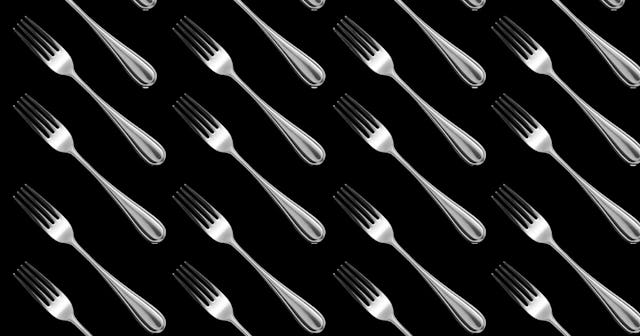Pica Is The Pregnancy Condition Few People Understand

We all have cravings during pregnancy, and some of them are pretty weird, amiright?
All I wanted to eat with my first baby were chickpeas and mint chocolate chip ice cream – and honestly, if you put them both in a bowl together, I probably would have chowed down. I had to eat about four oranges a day (or tangerines or clementines — any orange fruit would do) when I was pregnant with my second baby. I wanted pickles too (pretty classic), but I was most interested in pickle juice, and would drink it by the cupful.
All of this is normal, and a little gross (when you’re not pregnant, that is), but almost all pregnant women experience odd cravings during pregnancy, and it’s totally normal. However, a small number of pregnant women have cravings for even stranger things … non-food items, actually. You know, things like chalk, paper, soap, string, talcum powder, pebbles, clay, and bucketfuls of ice.
These women not only crave them, but might find themselves consuming them. Yes, it sounds totally bonkers, but it’s actually a medical condition called pica. According to the National Eating Disorders Association (NEDA), pica is classified as an eating disorder usually caused by nutritional deficiencies like anemia and characterized by the consumption of non-food items that have no nutritional value.
Pica most commonly affects children (up to 1/3 of young kids have it at one point or another). But the second most common group of folks to get pica, according to NEDA? Pregnant women.
I had no idea this was a thing, did you? But it totally is, and at times it can actually be pretty serious, because ingesting non-food substances can be dangerous (lead paint poisoning, ingestion of parasites, etc.). What’s more, if you have symptoms of pica, there’s usually an indication that you are experiencing an underlying health condition during your pregnancy that needs to be addressed.
Hill Street Studios/Getty
“We don’t know for certain what causes pica, but it’s believed to be an underlying nutritional deficiency, such as iron, or other physical or psychological concerns,” Karen Fleming, a family medicine doctor from Sunnybrook Health Sciences Centre in Toronto, told Today’s Parent.
“Iron deficiency and other deficiencies [such as zinc and iodine] are very common in pregnancy, especially if there is a pre-existing condition or significant morning sickness,” she added.
So how do you know whether your odd cravings are pica, or something else?
While it’s definitely normal to crave food items that you don’t normally crave, if you start to become fixated on consuming non-food items, or really anything you know you shouldn’t be eating, it may be time to bring this up with your healthcare provider.
And certainly, if you find yourself giving into these cravings, and consuming a nice big hunk of clay or a bowl of sand, you should be on the phone with your doctor or midwife right away.
“Iron deficiency and other deficiencies [such as zinc and iodine] are very common in pregnancy, especially if there is a pre-existing condition or significant morning sickness,” she added.
“A red flag could be the overwhelming urge to start consuming non-food items,” Shawna Melbourn, a dietitian from Ottawa explained to Today’s Parent. “If this leads to acting on that impulse by ingesting non-nutrition items, that’s a clear indication and you should seek professional help.”
Interestingly, one of the most common non-food items consumed by pregnant women with pica is ice, says Fleming – and often large quantities of it. In fact, a study published in the Journal of the American Association of Nurse Practitioners found that ice consumption during pregnancy is a symptom often overlooked by healthcare providers.
The study researchers urge healthcare providers to start asking moms if they have unusual hankerings for ice during pregnancy, as this could indicate pica as well as nutritional deficiencies like anemia.
The good news is that if you do end up having anemia (very common in pregnancy) or another nutritional deficiency, iron supplementation is usually all it takes to resolve the issue – and your pica symptoms should go away as well. Your healthcare provider may also recommend you seek help from a dietician, who can make sure your overall diet is providing proper nutrition for you and your growing baby.
Here’s the most important thing, though. If you do end up developing cravings for non-food items during pregnancy, don’t blame yourself. Our bodies do strange things while we are pregnant, and you didn’t cause this. It’s easy to get so freaked out and worried about what’s happening with our bodies during pregnancy that we are afraid to even bring up our concerns with our healthcare providers.
But please share any concerning symptoms with your doctor or midwife. They have seen it all, and want to help you stay strong and well during your pregnancy. And I promise, a few months or years down the road, you’ll be able to have a very good chuckle about those months when the stuff you craved during pregnancy was weird AF.
This article was originally published on